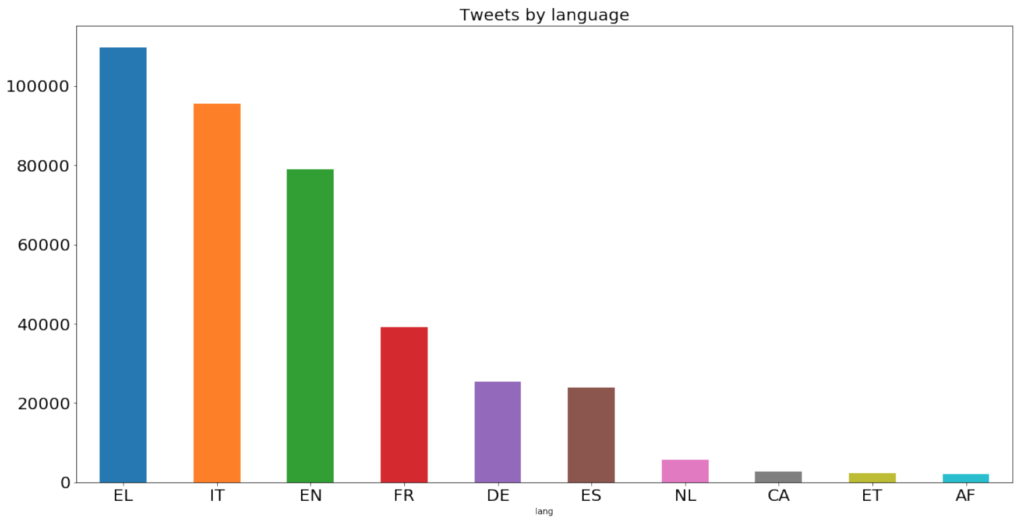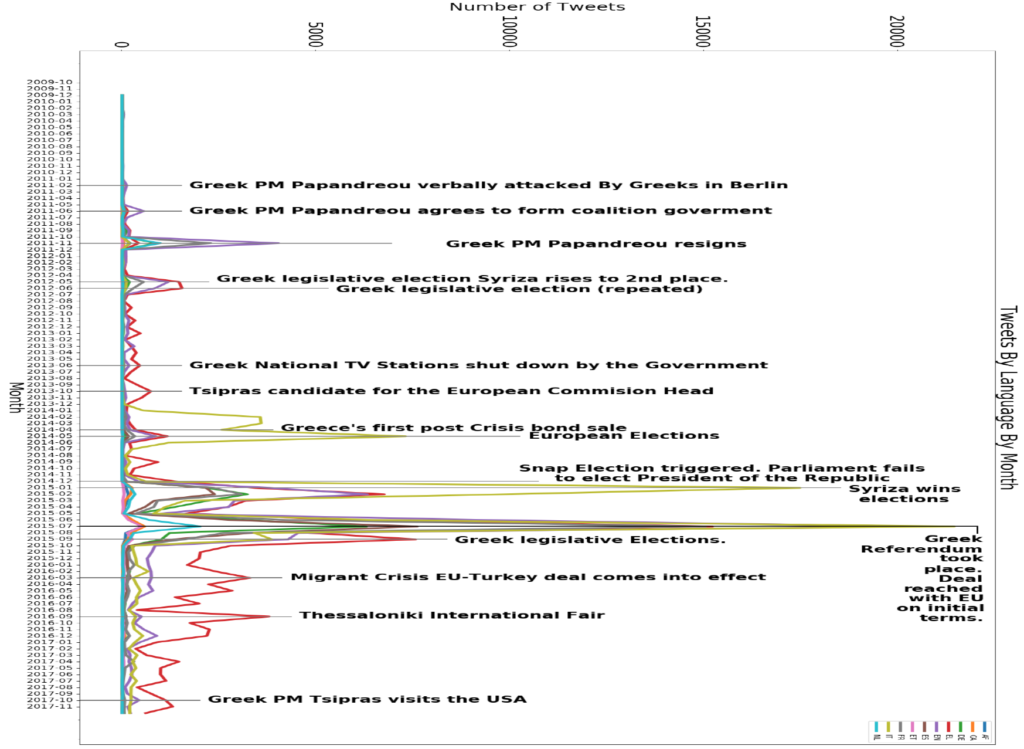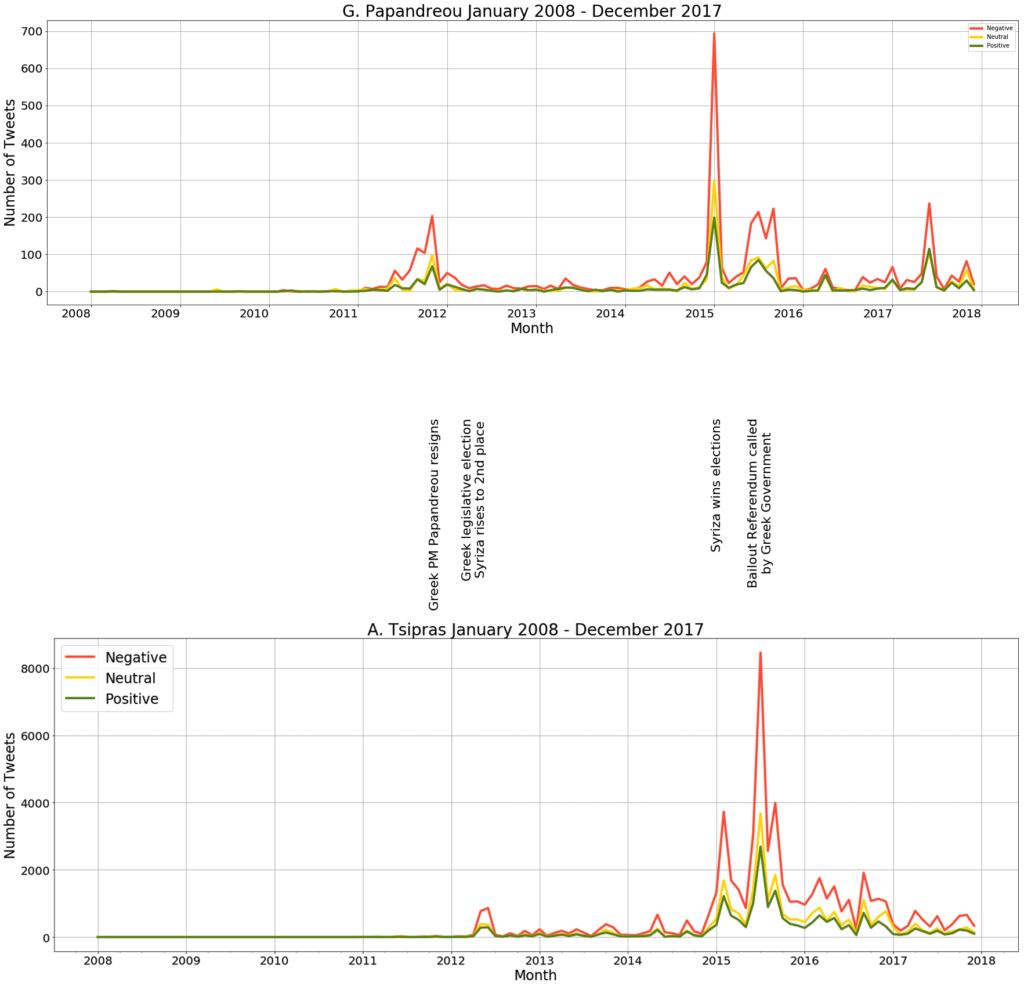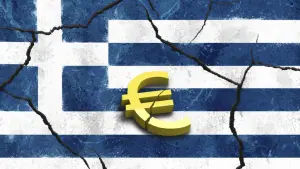Every year I am teaching social media analytics at the Cyprus International Institute of Management. The course includes topics such as natural language processing, and how to extract insights from social media. Last year I was lucky to have Valerios Paris Mitsakis in my classroom, who did a very impressive an interesting project, which I’d like to share on my blog.
The topic of the project was the investigation of the Greek debt crisis through social media.
I am providing a summary of some of the most interesting findings. I find it fascinating how much insights you can extract from social media, sometimes by using very simple techniques.
For example, in the graph below you can see the tweets per language. It is clear that Greek dominates (which comes at no surprise). Also, many tweets are in English, which again poses no surprise, as the majority of online media in the west is probably in English. what is interesting is the large number of tweets in Italian and French. They outweigh the number of tweets in German. Germany was the country exposed most to Greek debt, and the key negotiator with the Greek government, so we expected more tweets to be coming from there. It is not clear, whether this indicated a smaller interest, or whether the Greek debt affair was covered mostly in other media (e.g. newspapers). The large number of Italian tweets is probably explained by the fact it is a neighbouring country to Greece, with similar financial challenges.

The graph below shows a chronicle of interest in Twitter (total number of Tweets across the years starting from 2009), regarding various events about the crisis. When George Papandreou resigned, the majority of posts are English (purple colour). Greece’s first bond sale attracted lots of interest from Italy (yellow colour) and this was also the case for the snap elections (which Syriza won) and the Greek referendum. The red line is the total number of Greek tweets, which are often trumped in number by the international interest. This is probably due to the fact that Greece’s overall population is rather small (around 10-11 million) compared to other countries in Europe.

In the graph below we see a sentiment analysis of tweets about George Papandreou and Alexis Tsipras. The tweets are a representative sample of the Greek Twitter sphere. There are two things that stand out the most. First, negative sentiment is the dominant sentiment across the years. Secondly, the number of tweets about Alexis Tsipras are 10 times as many as the tweets for George Papandreou. This might be due to the younger voter base of Syriza.

This are some of the best pieces of this analysis. If you want to read all of it, just drop me an e-mail. Feel free to reach out with any questions or comments!

